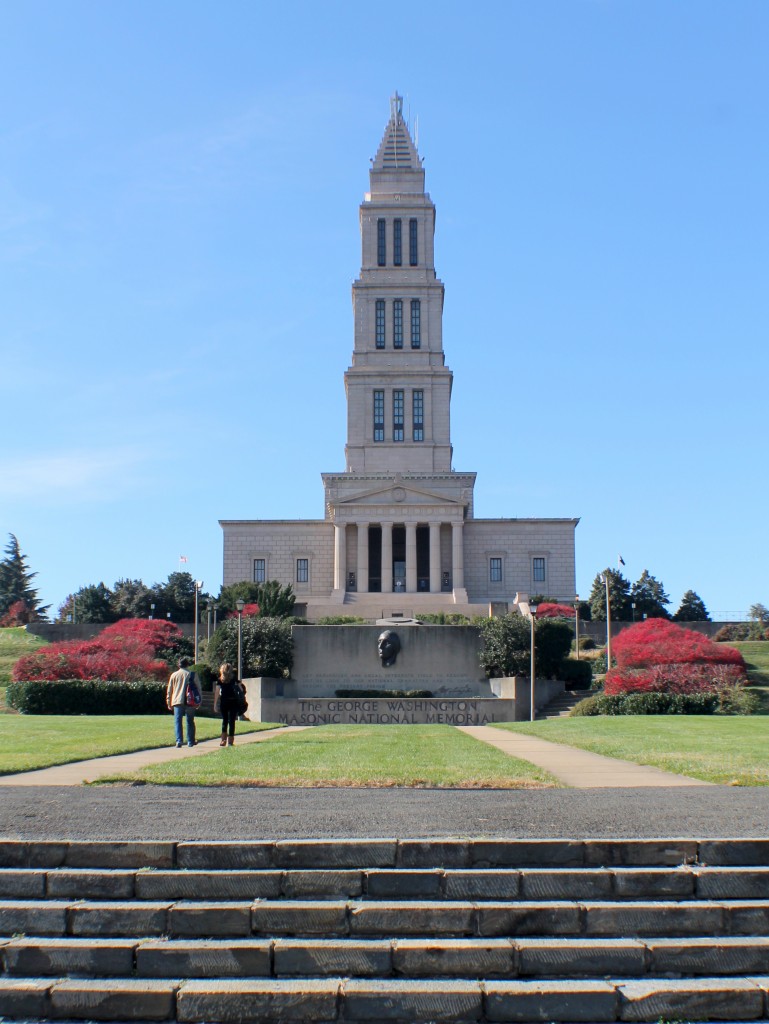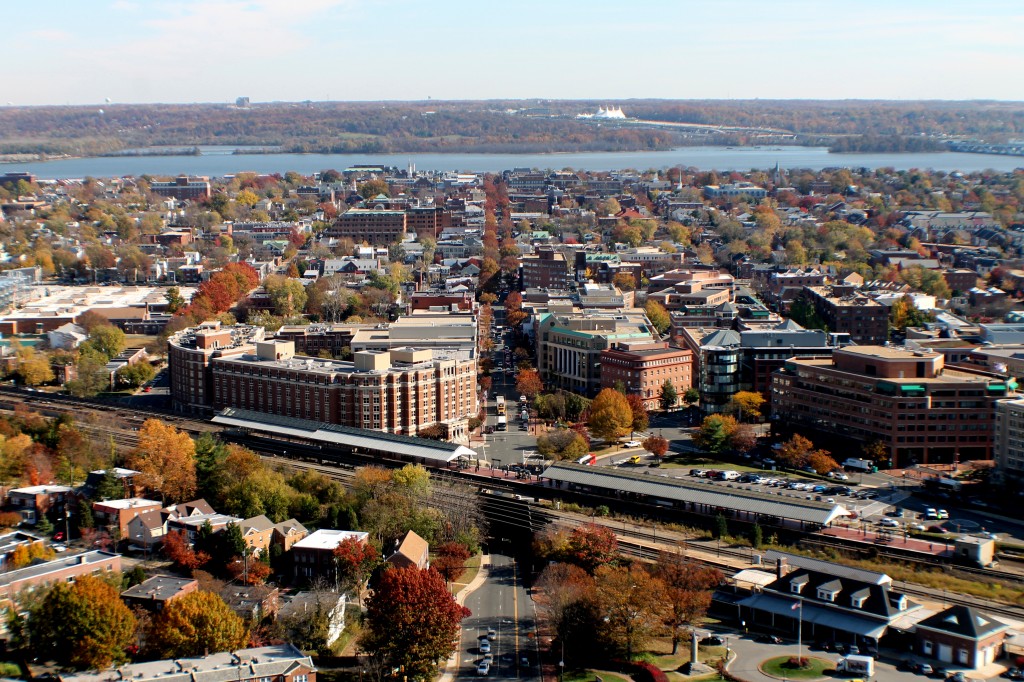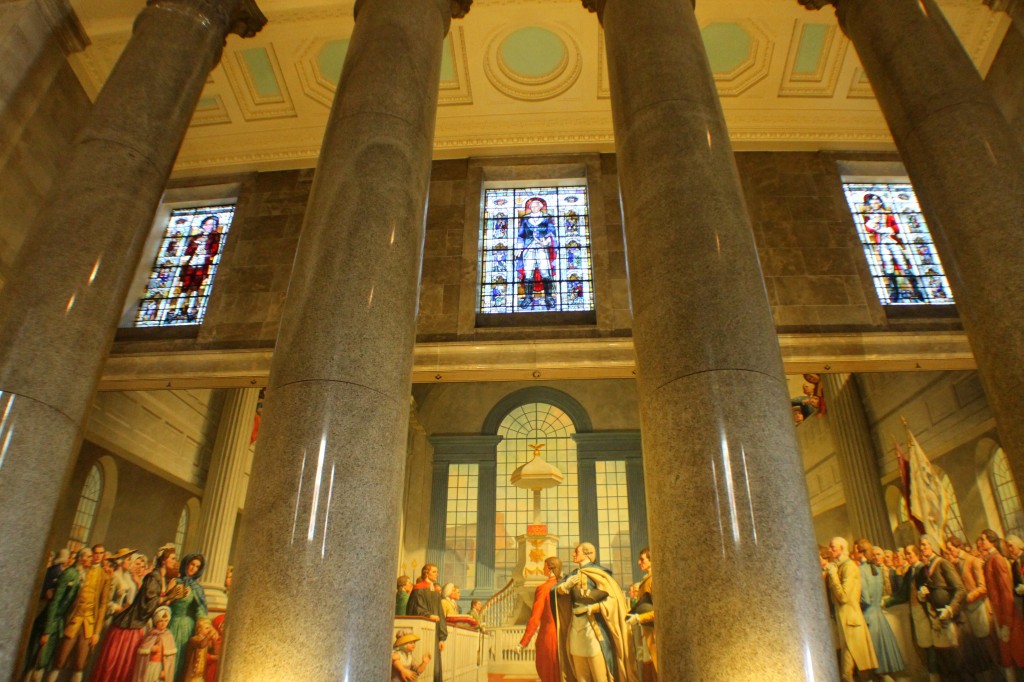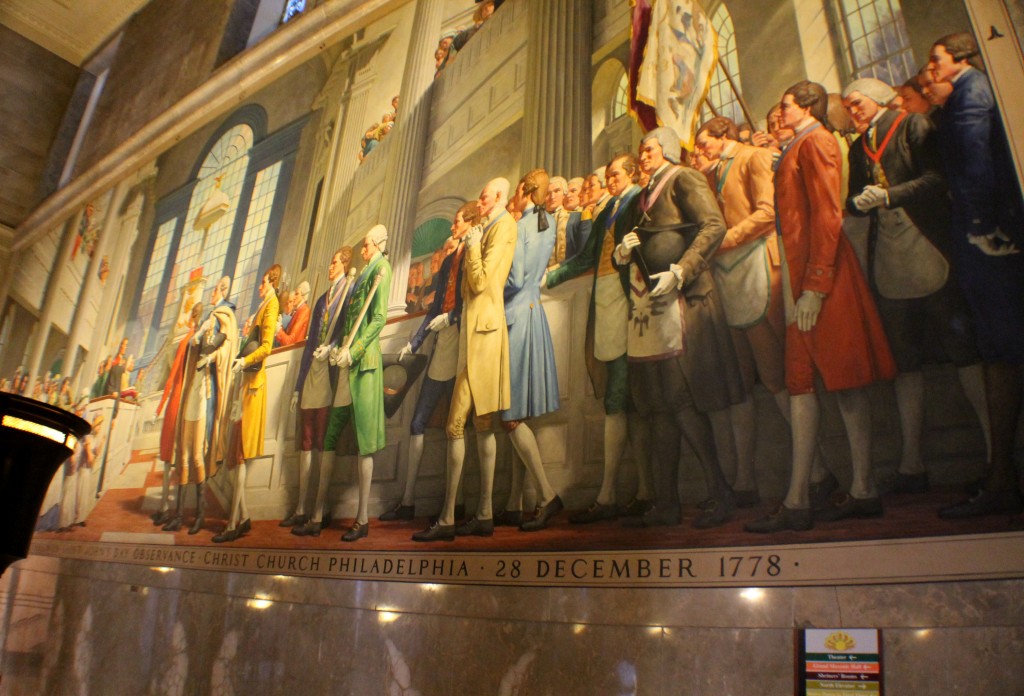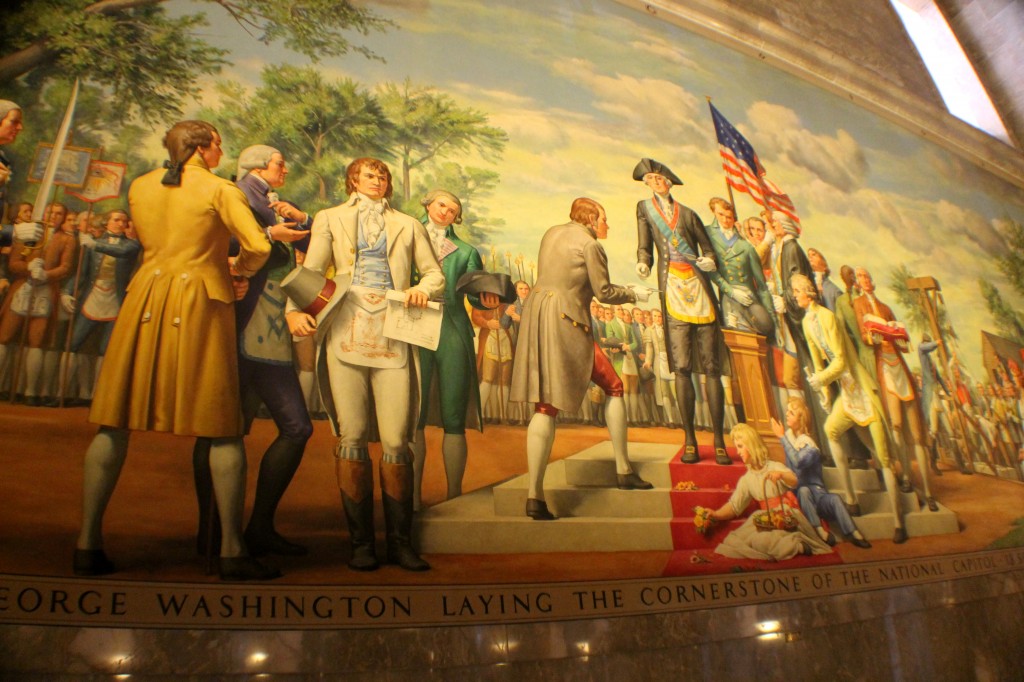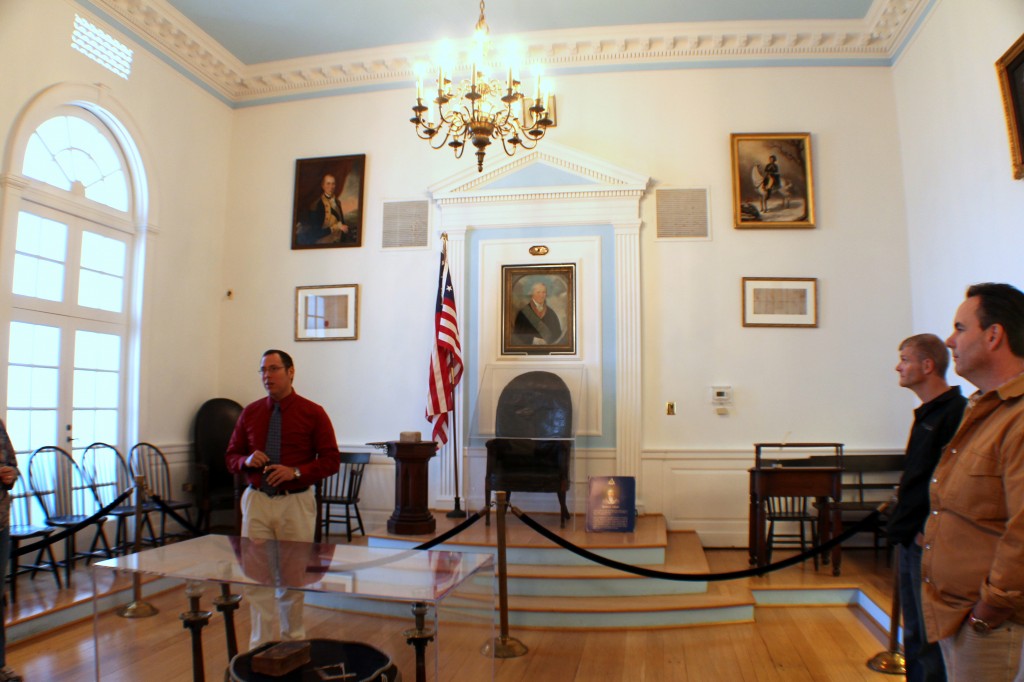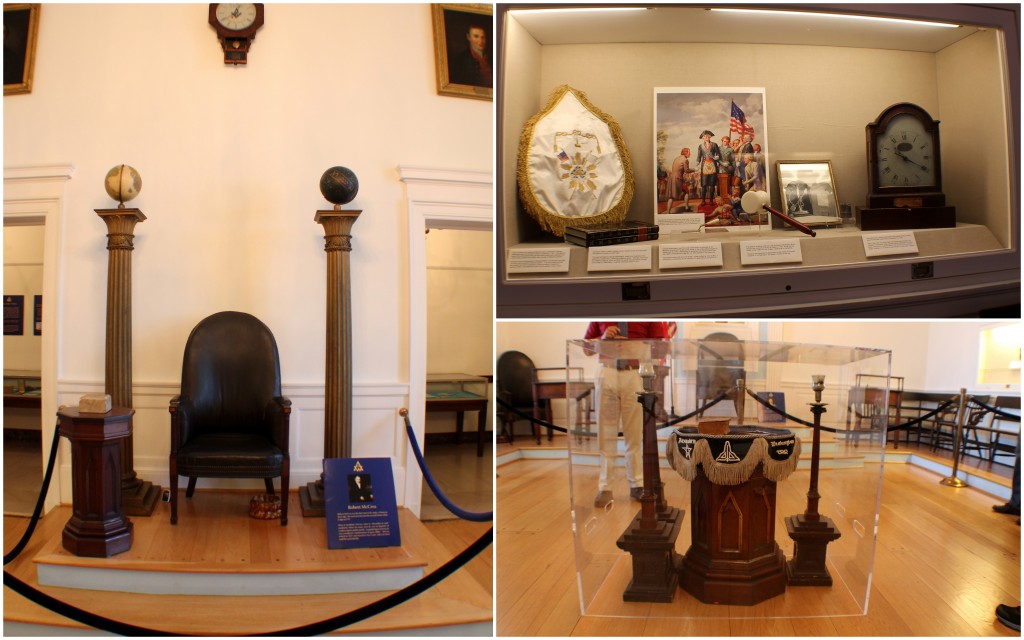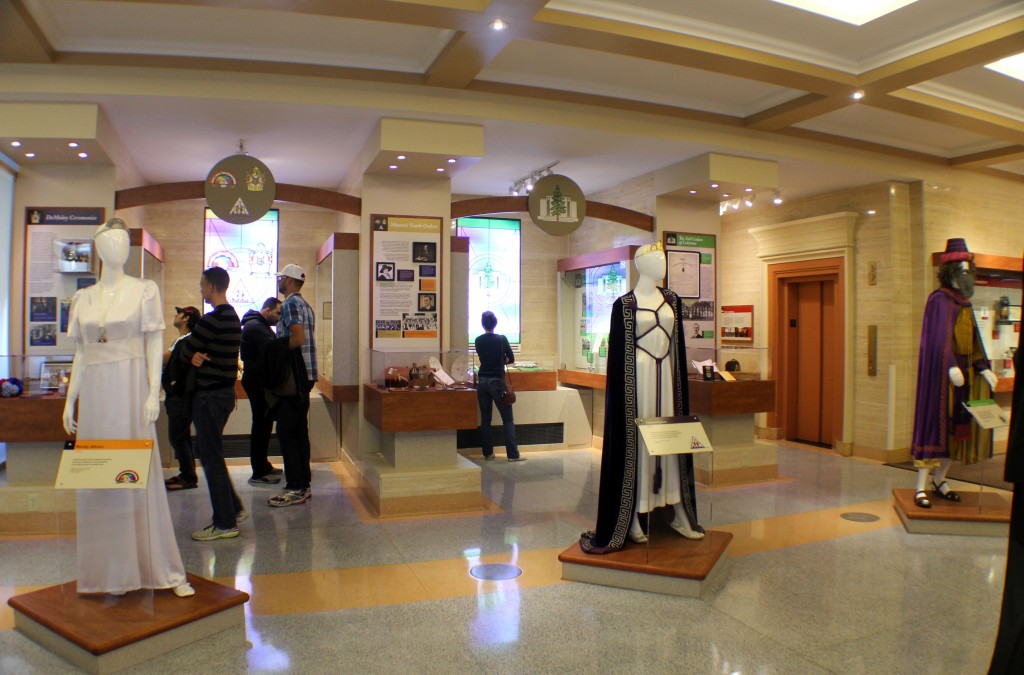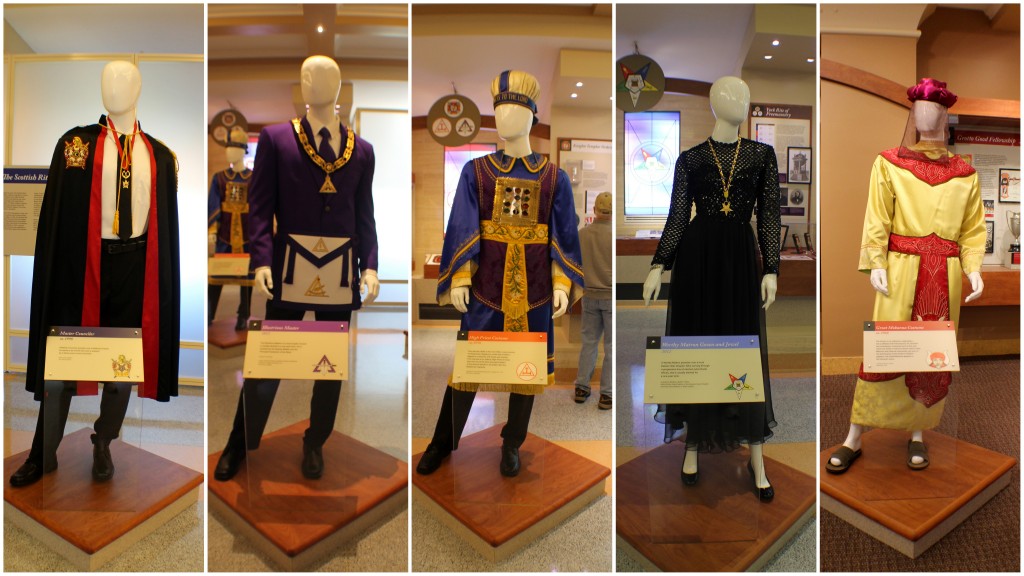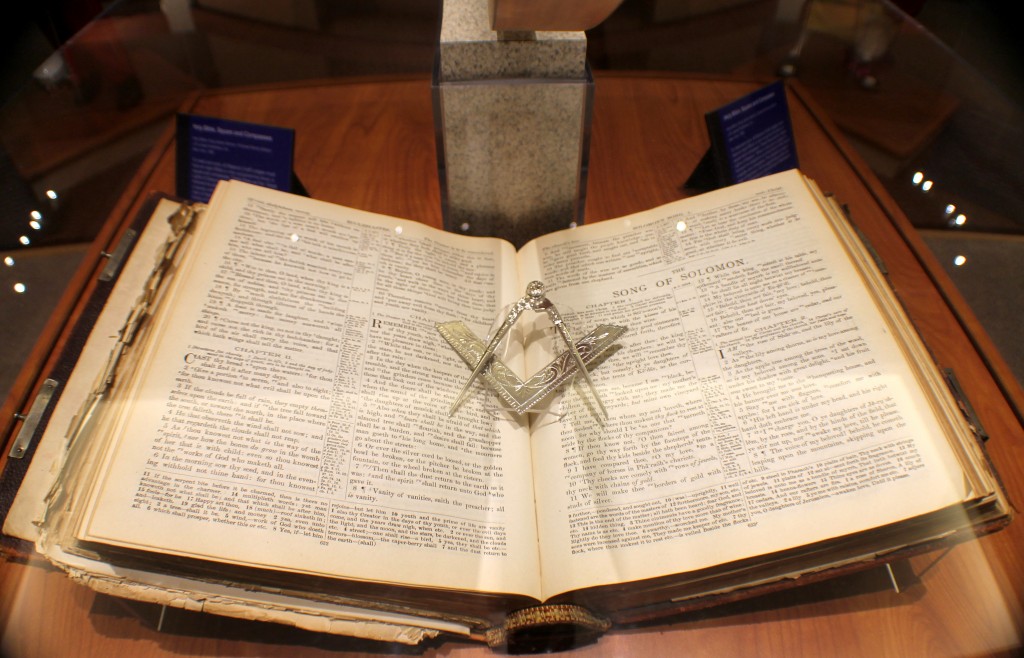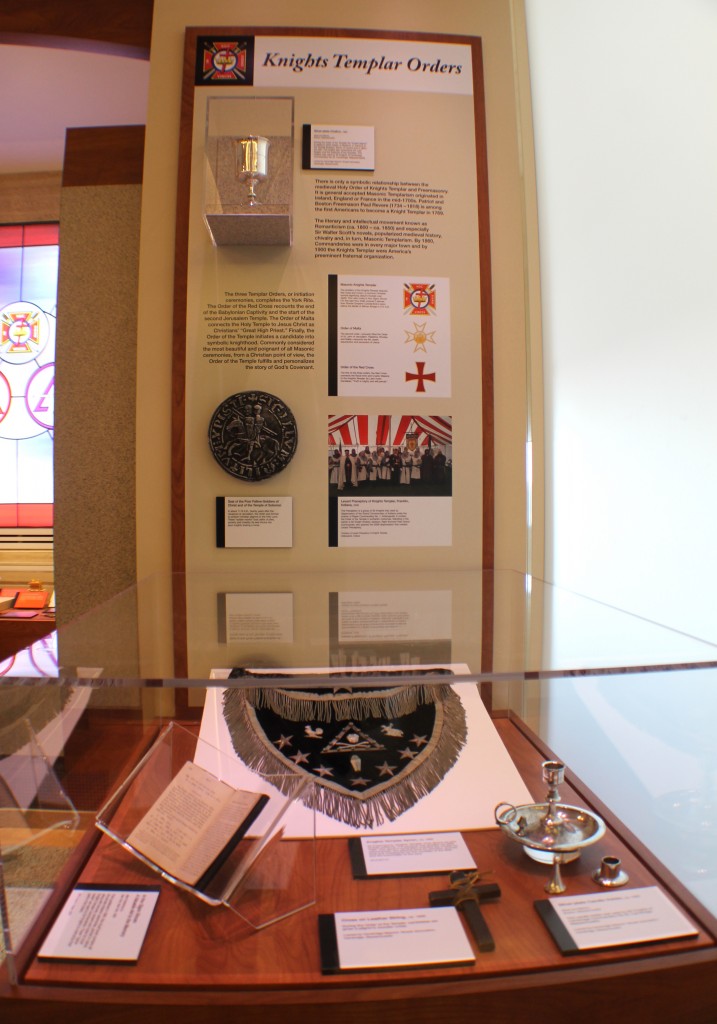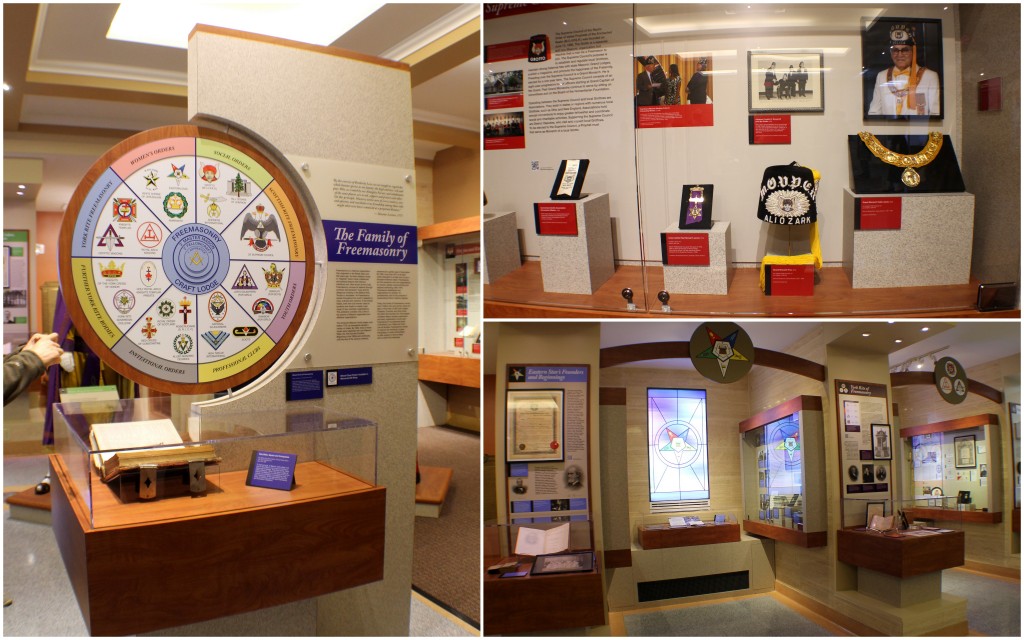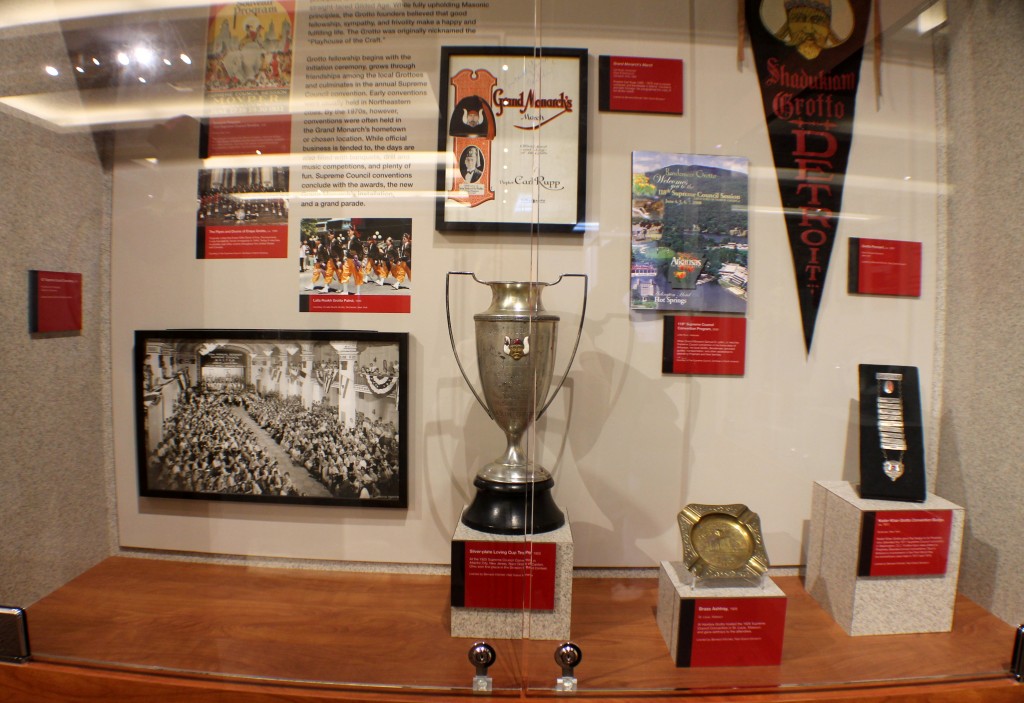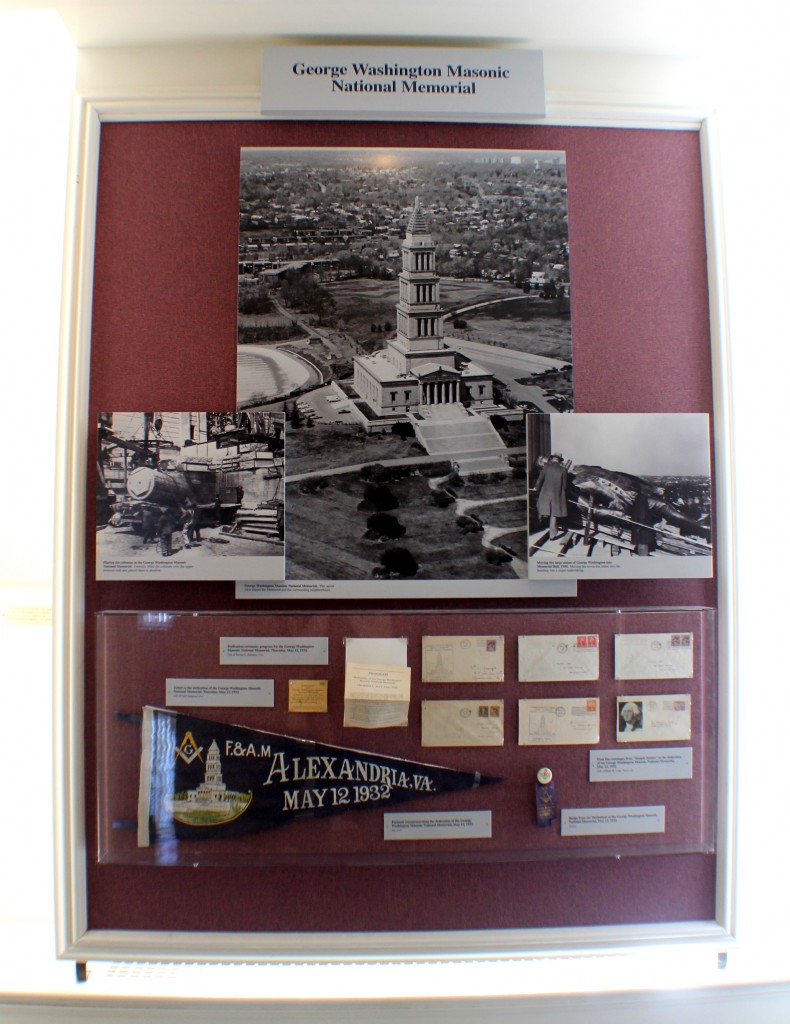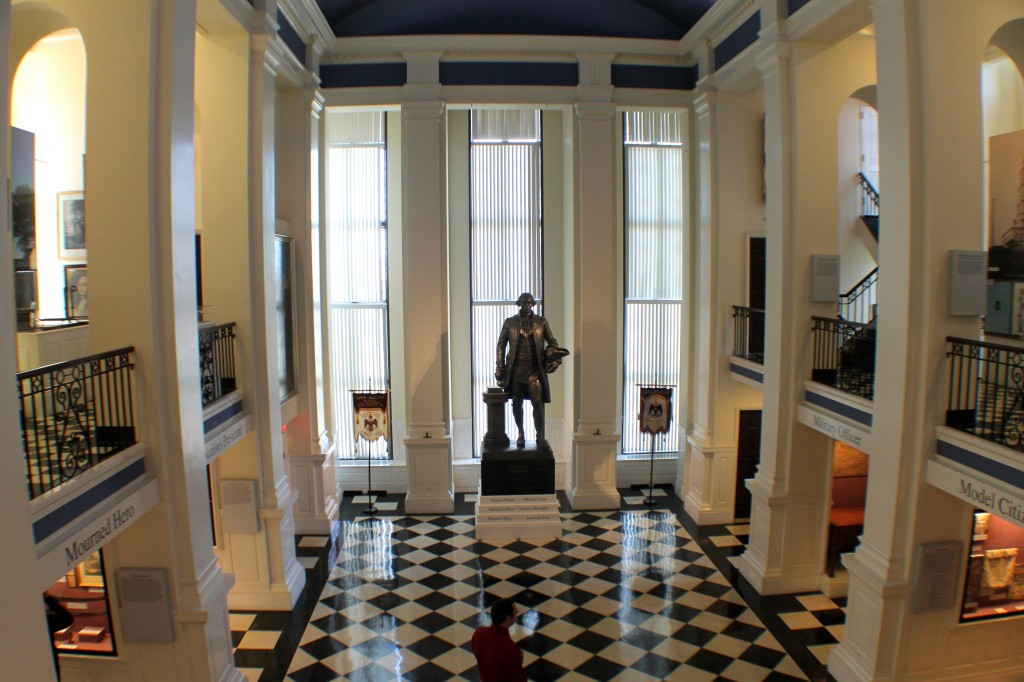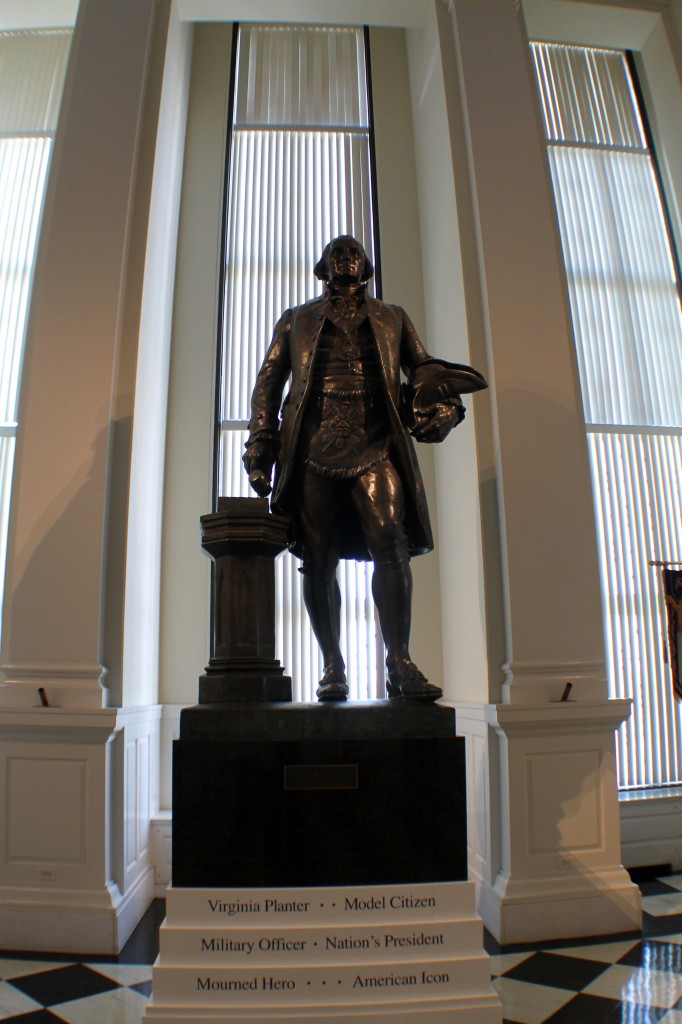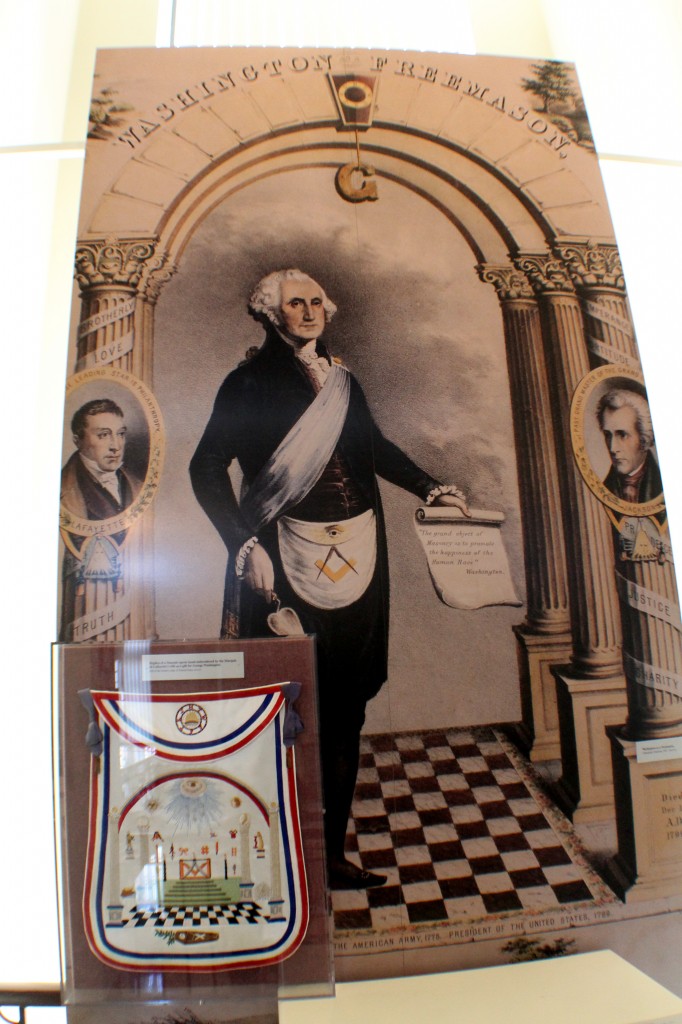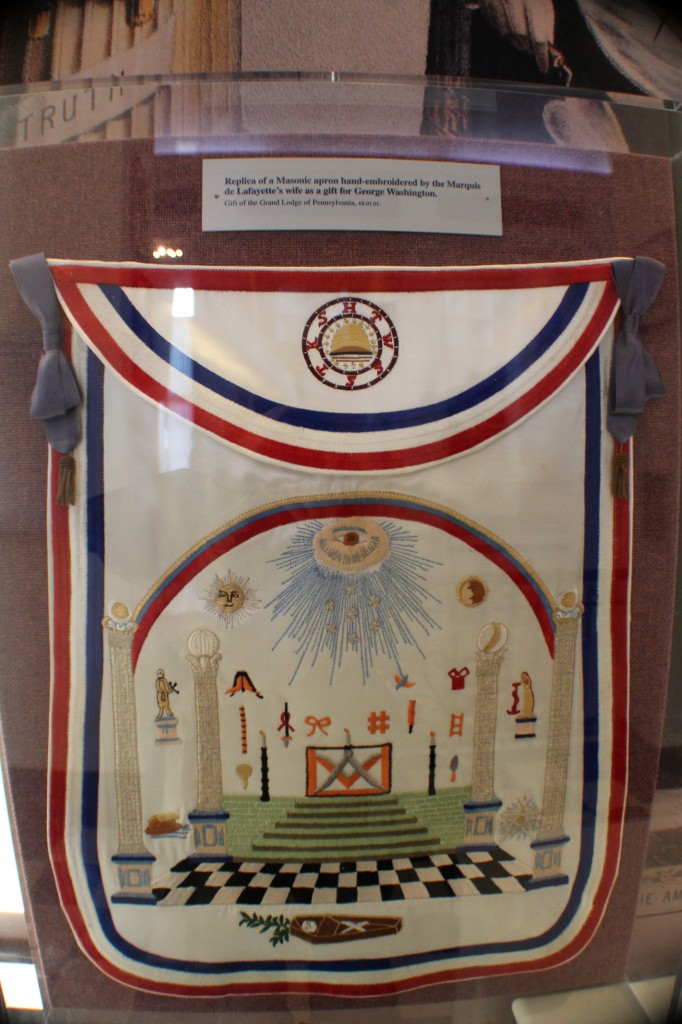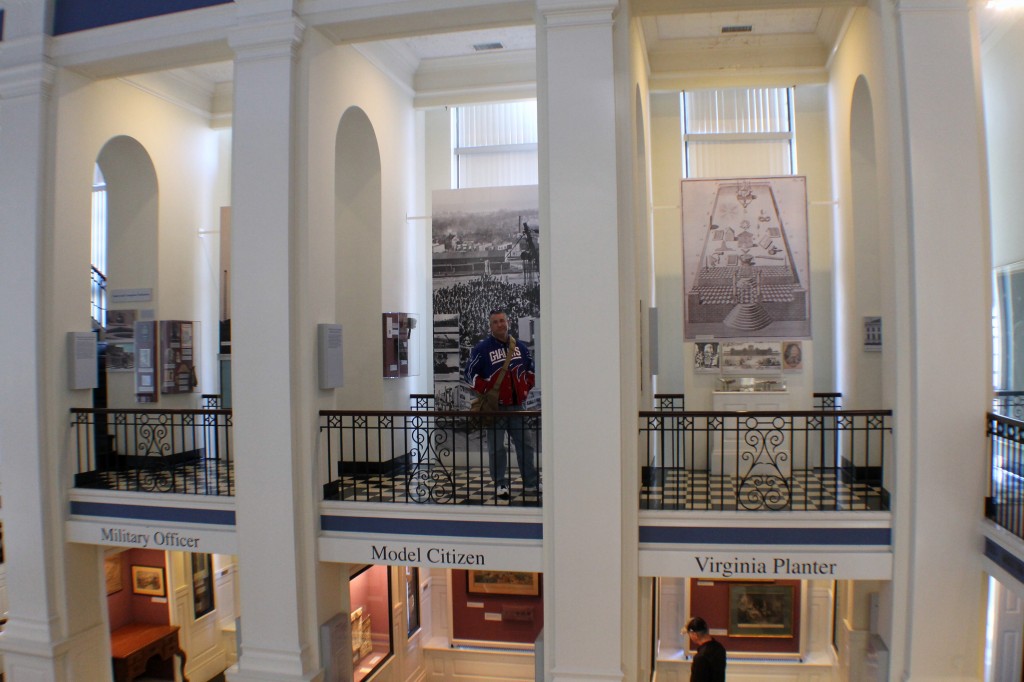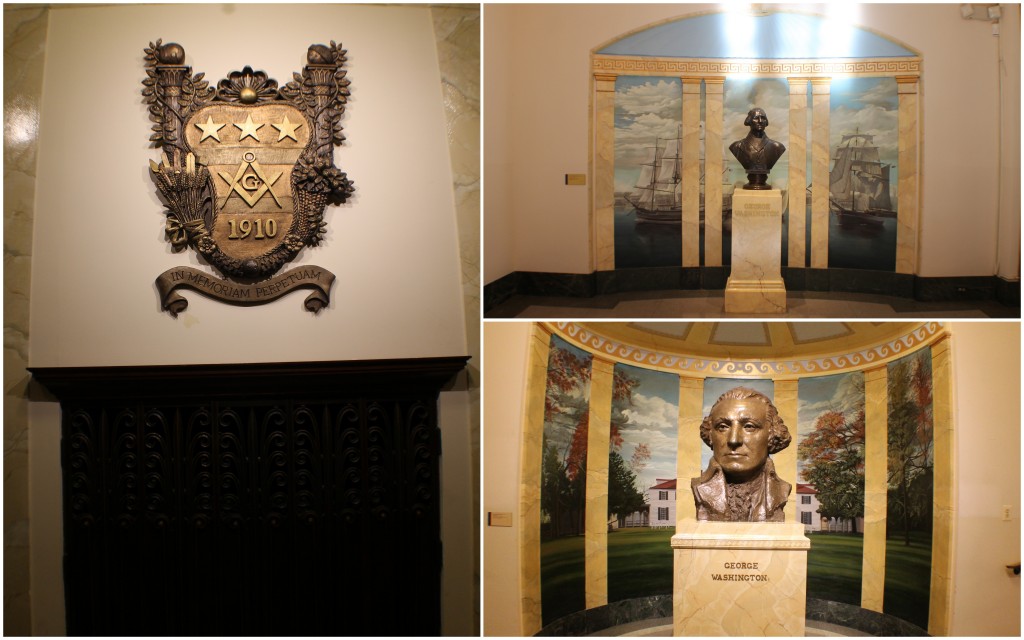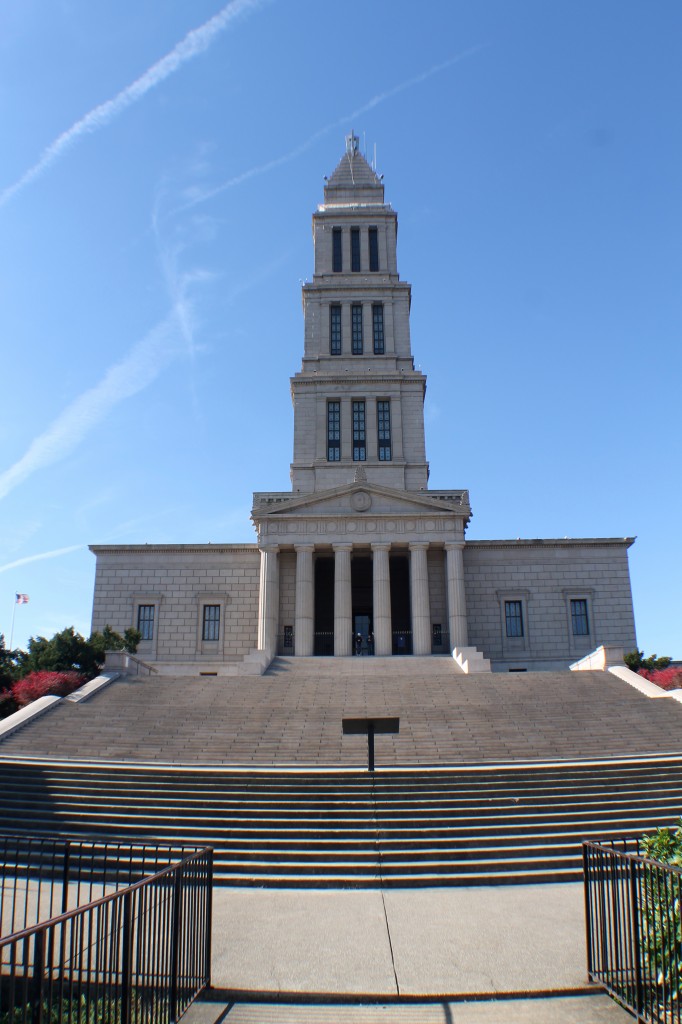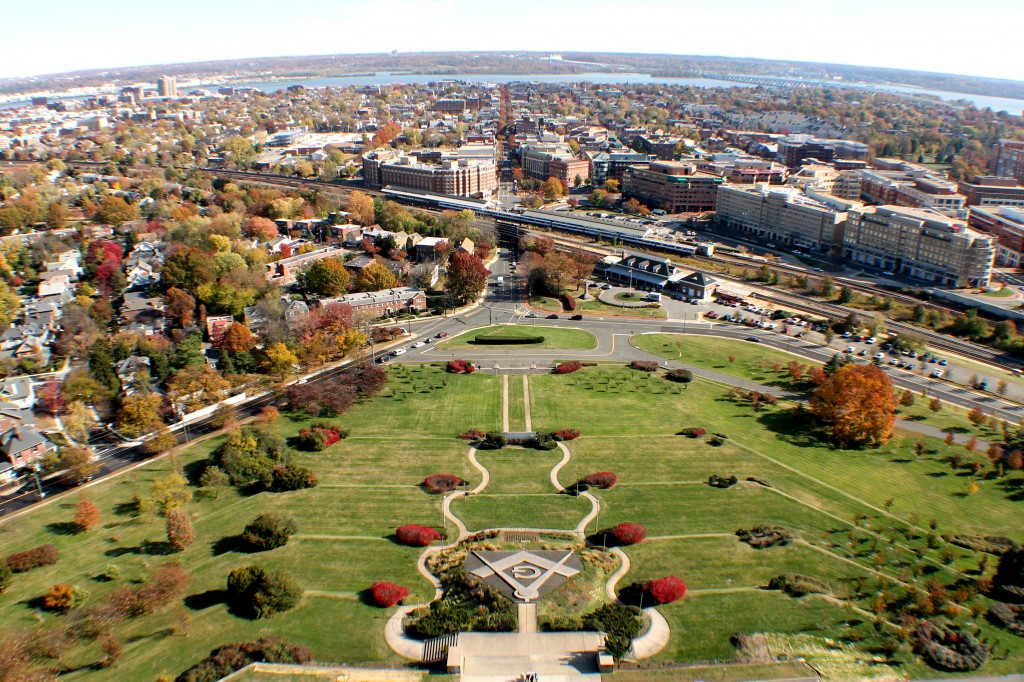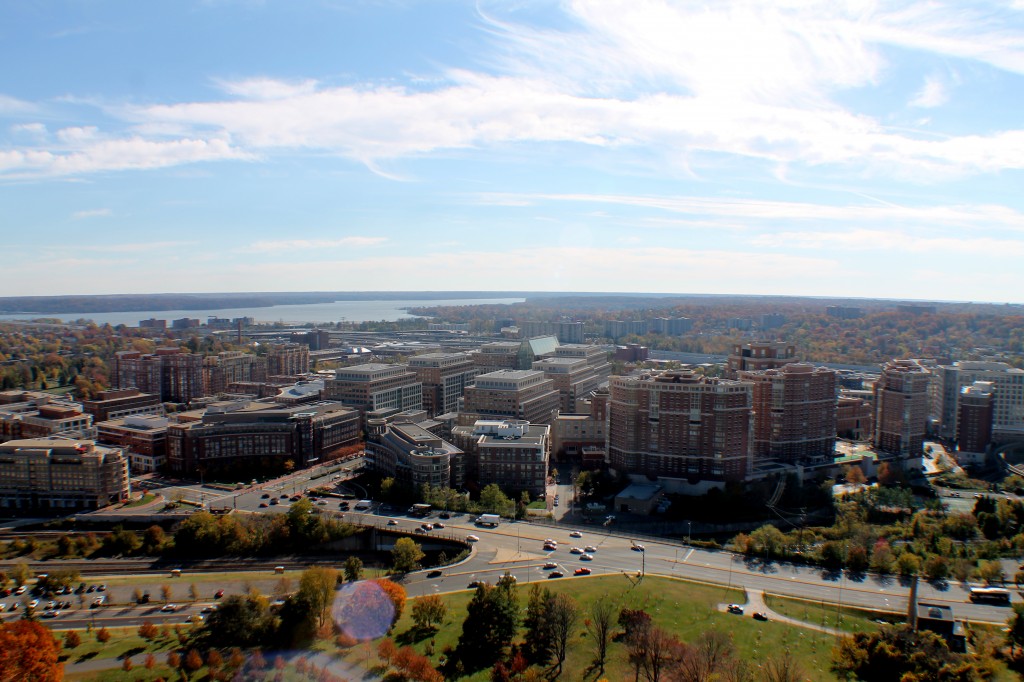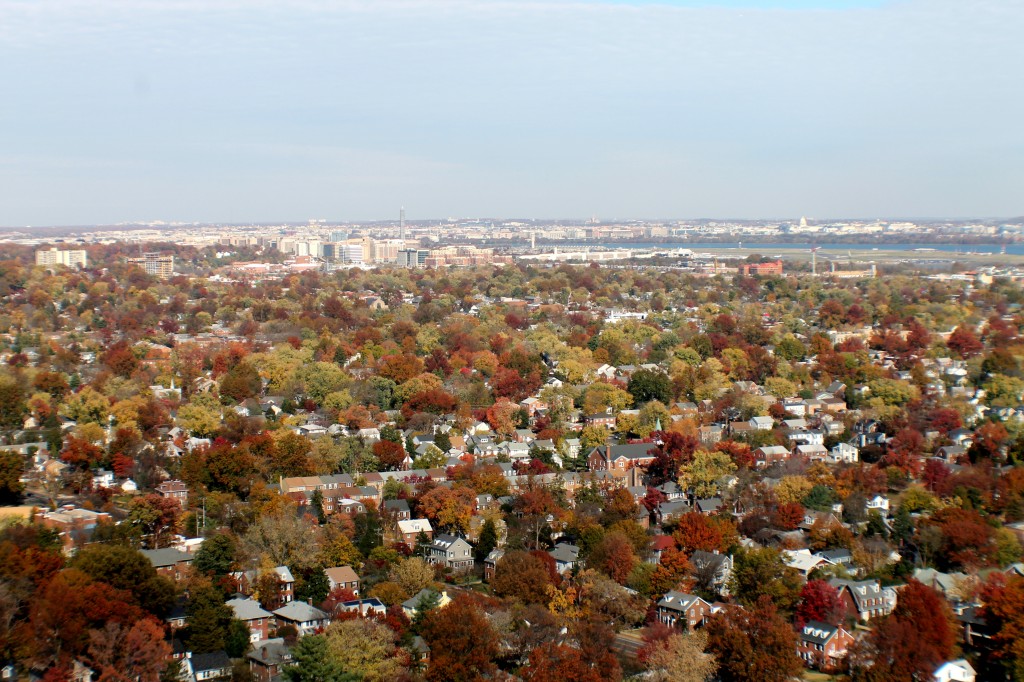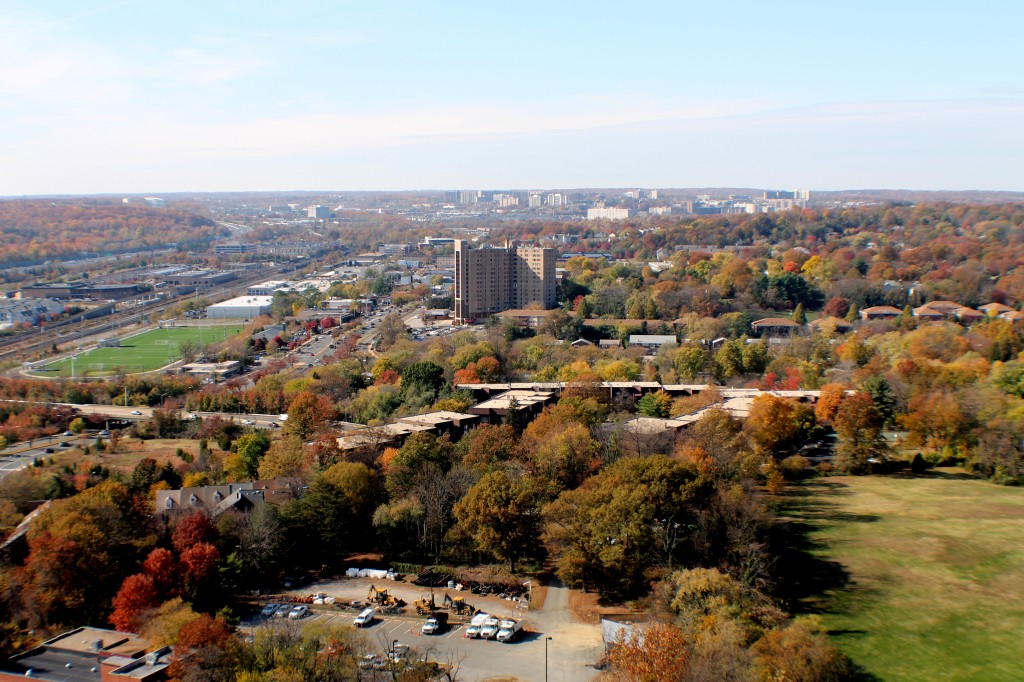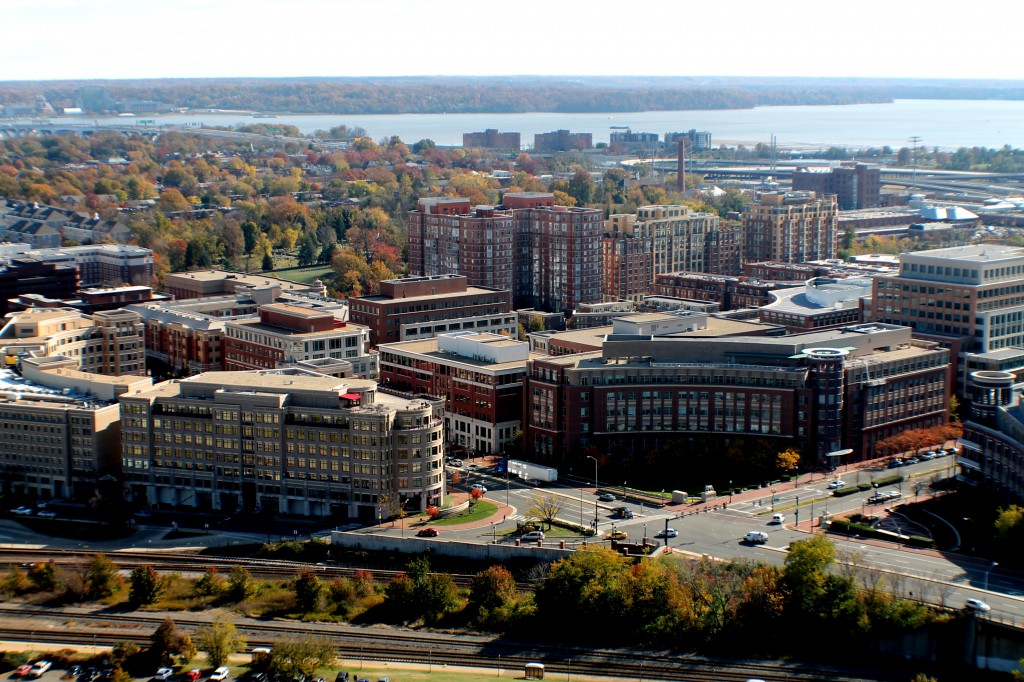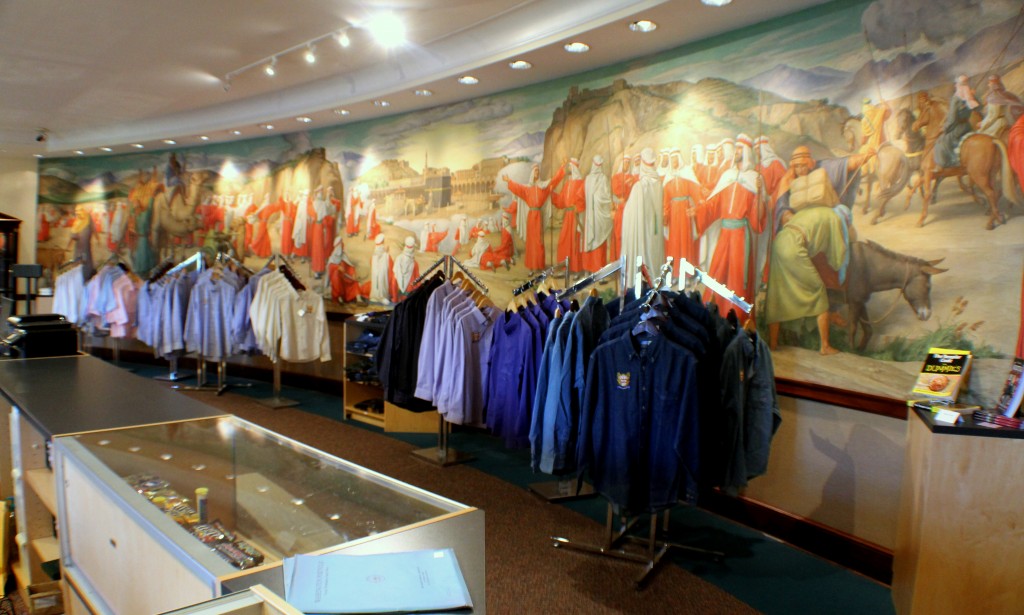Every time I change trains at the King Street Metro station, I wonder what is inside of that beautiful memorial and that I need to visit it. It took a while, but Dave and I finally picked a day and scheduled a tour.
The George Washington Masonic National Memorial is a Masonic building and memorial dedicated to the memory of George Washington, the first President of the United States and a Mason. This magnificent structure also serves as a research center, library, community center, performing arts center and concert hall, a banquet hall and meeting site for local and visiting Masonic lodges.
The tower is fashioned after the ancient Lighthouse of Alexandria in Egypt. The 333-foot (101 m) tall memorial sits atop Shooter’s Hill, a lofty peak in mid-Atlantic terms, at 101 Callahan Drive in Alexandria, Virginia.
The memorial is served by the King Street – Old Town Metro station on the Blue and Yellow Lines of the Washington Metro system. The station is located about four blocks from the memorial. Here is the view of King Street and the King Street Metro station from the memorial’s observation deck.
The main entrance hall features a 17 ft. bronze statue of Washington and beautiful murals that depict the history of American Freemasonry. Statue of George Washington.
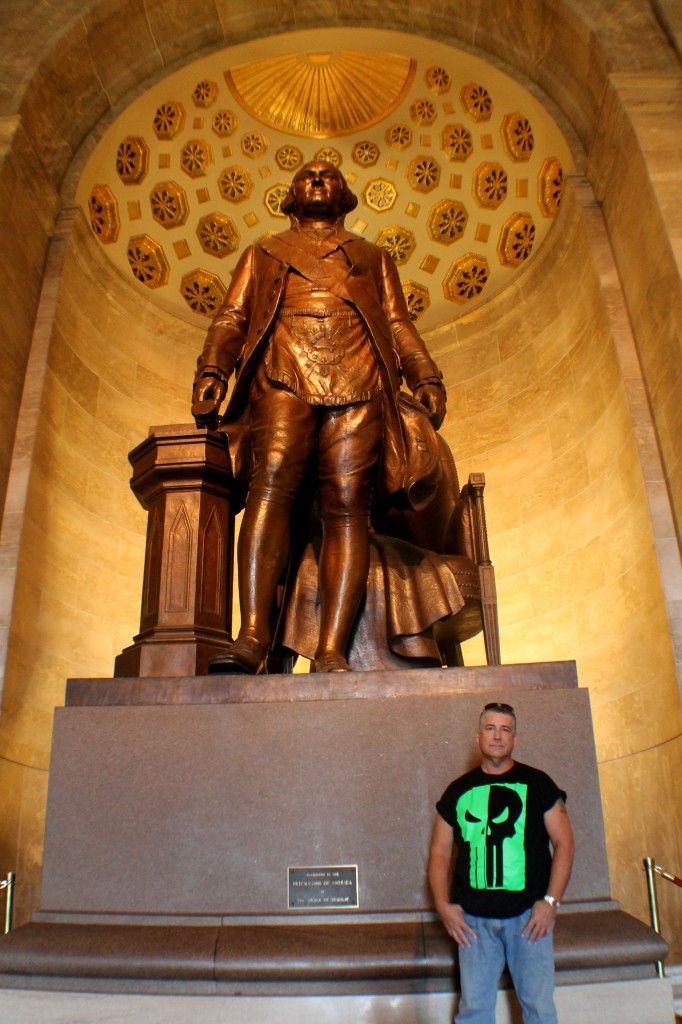
The Memorial Hall features Corinthian style columns; two gigantic murals by famous American artist Allyn Cox depicting the presentation of carved keystones to the supervisor for quality-control checks and six stained glass windows.
The North wall portrays General Washington attending a Masonic service at Christ Church, Philadelphia in 1778 for the relief of the poor following the British Army evacuation. It represents Masonic relief and universal charity.
The South mural depicts President Washington presiding at the Masonic cornerstone ceremony for the United States Capitol in 1793. It represents Freemasonry’s support of democracy and rule of law.
The basic local organizational unit of Freemasonry is the lodge. The lodges are usually supervised and governed at the regional level. Left of the entrance is the Alexandria-Washington Lodge No. 22 Replica Lodge Room, which faithfully duplicates the look of the lodge room at the time Washington presided over the lodge.
This room contains several items which belonged to Washington as well as historic items (such as furniture) from the Alexandria-Washington Lodge. Behind the Master Mason’s chair in this room is the William Joseph Williams portrait of Washington in his Masonic garb.
The collection of the Alexandria Washington Lodge includes numerous Masonic implements, like gavels, trowels and jewels among others, many with historic associations.
Throughout the nine floors of the George Washington Masonic Memorial are many displays and exhibits. The Memorial’s three-tier Tower is comprised of six floors open for tour. The 3rd floor exhibits information on the Masonic social order known as Grotto and contains exhibits about the history, charitable activities, and socializing that various Masonic bodies engage in. This room is filled with various Masonic ceremonial costumes.
The Masonic Square and Compass is the single most identifiable symbol of Freemasonry. Both the square and compass are architect’s tools and are used in Masonic ritual as emblems to teach symbolic lessons. Holy Bible, Square and Compass.
Exhibits throughout the George Washington Masonic Memorial tell the story of Freemasonry, a fraternal organization that employs the tools and instruments of stonemasonry to teach a system of morality, friendship and brotherly love.
George Washington was a member of the fraternity of Freemasonry, the oldest and largest world wide organization dedicated to the Brotherhood of Man under the Fatherhood of a Supreme Being. Freemasonry is not a religion. Each Mason worships according to his own religious faith whether he is Christian, Jewish, Roman Catholic, Buddhist or Hindu.
Freemasons seek to improve the world through charitable, educational and civic projects. Today the Society has members within 185 Grand Lodges. Washington joined the Freemasons when he was 20 years old and in his retirement served as the charter master of the Alexandria lodge.
There were several reasons why Masonic bodies finally began to build a memorial. The construction of George Washington Memorial Park sparked renewed Masonic interest in building their own memorial. But another reason was the safety of items owned or used by George Washington (“Washingtoniana”) and which were now owned by the Alexandria-Washington lodge.
The lodge had suffered several fires over the previous century, and a number of these historic items were destroyed. Constructing a fireproof building which would more safely house these important items was a major factor in pushing the Masonic memorial forward according to Wikipedia. This photograph depicts the Memorial from 1932.
The 4th floor is the George Washington Museum. The main floor examines George Washington according to the several roles and offices he filled in his life: planter, soldier, and president. In a commanding position is an impressive bronze statue of Washington, the work of Donald DeLue.
“The grand object of Masonry is to promote the happiness of the Human Race”, Washington.
Replica of a Masonic Apron hand-embroidered by the Marquis de Lafayette’s wife as a gift for George Washington.
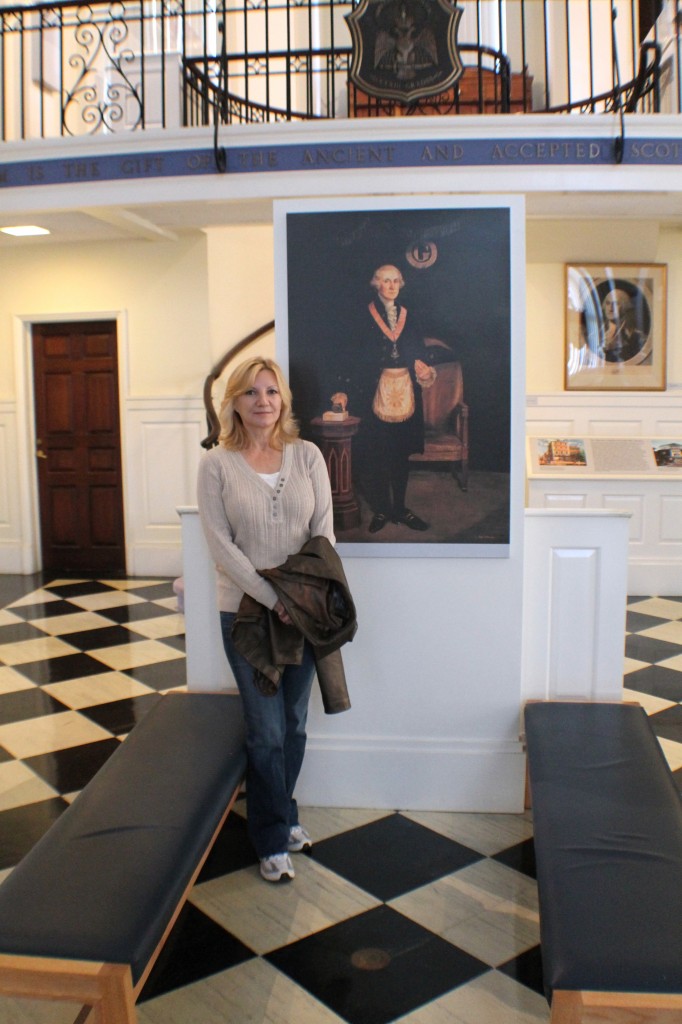
The George Washington Masonic Memorial honors Washington with many exhibits and works of art. George Washington Busts.
Parts of the movie “National Treasure: Book of Secrets” were filmed at the memorial, but the building feels far less steeped in history than you might imagine. The building’s cornerstone was laid in 1923, and the last room wasn’t completed until 1983 per our tour guide.
The 9th floor is the Observation Deck and currently displays information on the Masonic social order called the Tall Cedars of Lebanon. At over 400 feet above sea level, the Observation Deck provides a magnificent, panoramic view of the Metropolitan area including Alexandria, Virginia; the Potomac River; Maryland; National Harbor; the U.S. Capitol and the Washington Monument.
Another cool thing about the memorial: Since the top is more narrow than the bottom, the elevators ascend diagonally at a 7.5-degree angle. You can feel yourself leaning to the side of the elevator as you go up.
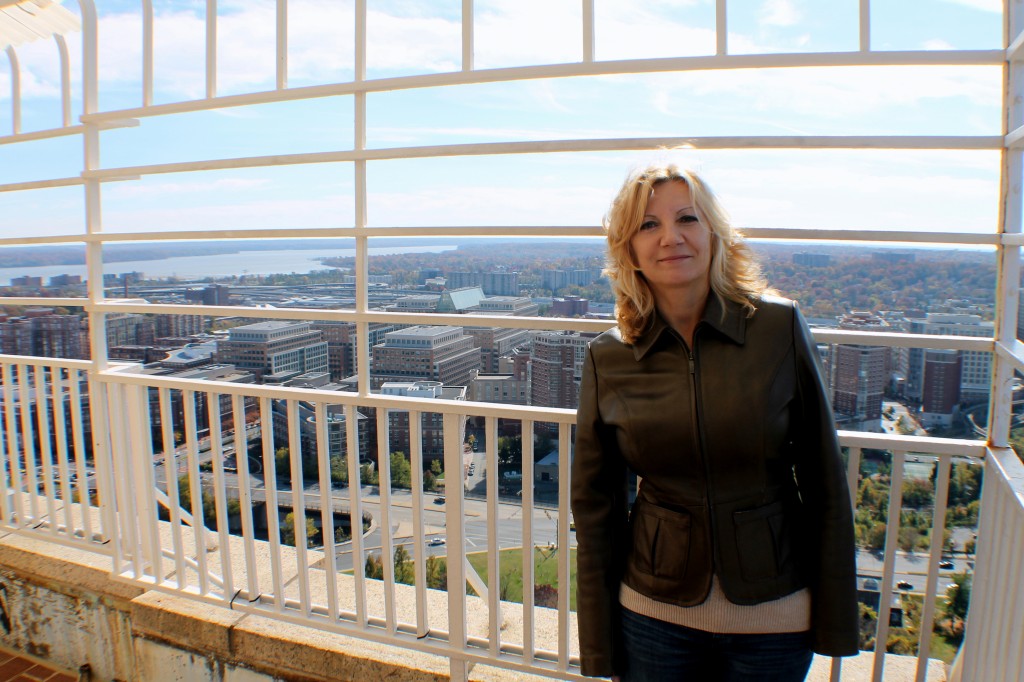
The Square and Compass, a large Masonic symbol built of concrete, was added to the memorial in 1999. The view from the George Washington Masonic Memorial.
Exiting the Memorial through the Gift Shop. The Panoramic Murals on the Gift Shop’s wall. For more information, the Interactive Tour of the Memorial can be viewed here.
